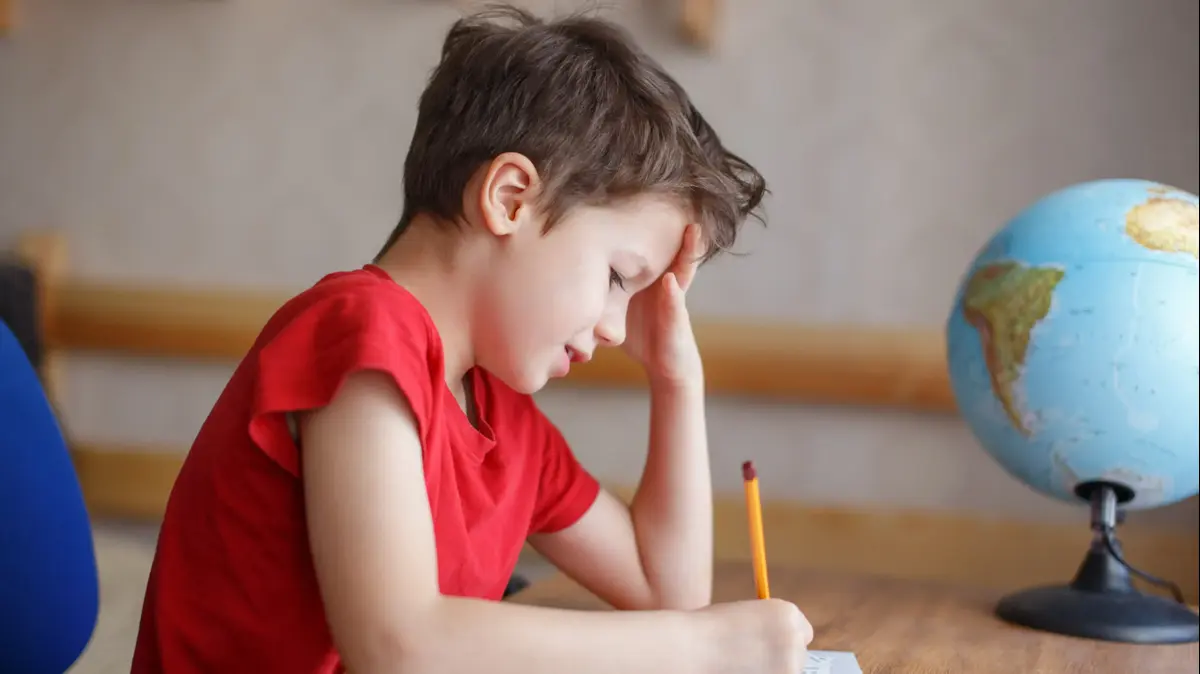health
parenthood
Riddle Puzzle: Help the kids with homework or not?
Why do our children get homework in general, and when we help them do we actually hurt them?
Parent Instructor Explains How To Raise At Home "Independent Learner"
Tags
parenthood
Pupils
Homework
parents and children
Lizzie Porat
Monday, 20 September 2021, 07:38
Share on Facebook
Share on WhatsApp
Share on general
Share on general
Share on Twitter
Share on Email
0 comments
The school year has opened, and with it a collection of worries and uncertainties about what awaits us this year in the education system, as long as the Corona is with us.
To these worries is added an ongoing feeling that for over a year, our children have not really progressed in the various subjects in school, and have certainly opened up considerable knowledge gaps.
One of the issues that concerns quite a few parents is the issue of homework.
Parents have a big and significant role in encouraging their children to do homework, study for exams and submit assignments.
But this role is more about "what not to do."
Let's talk about it once and for all, is it right to help our children with school assignments or are we hurting them more than helping?
More on Walla!
How can children who have difficulty making friends be helped?
To the full article
Many parents feel helpless in the face of the great threat called: homework.
As their children grow up, parents become helpless in the face of math exercises they have long been unable to remember how to solve, questions in history, geography and language.
Add to the big threat the feeling of helplessness of the parents from the Corona period: lessons not learned, amounts of information, tools and skills not acquired, knowledge gaps that have opened up.
Do you remember how to solve algebra exercises?
Mother and daughter prepare homework together (Photo: ShutterStock)
What to do?
Parents immediately enlist a battery of tutors to help their children stay in a good spot in the Zionist Mice Race.
"No choice" they will say, all children get private lessons - that my child will be left behind?
Why do children even get homework?
Children are given homework that aims to develop an "independent learner." In practice what happens is far from learning, and even further away from independence.
Recently, I was privileged to watch, as a parent counselor who is also the mother of a teenager entering high school, in a situation that was very interesting to me. A large group of children came to our house and saw the book (my daughter's summer reading assignment) on the table. They immediately started a round: "Wow, what did you start reading? I haven't even bought the book yet", "I bought the book two weeks ago, I put it in a drawer", "I actually tried to read, I sat on the couch for two hours and fell asleep. I reached page 2."
I smiled to myself as I thought about what their parents would say if they heard this conversation going on between the children. Let’s face it, no matter what we would do, they wouldn’t read any book this summer, and yet I think they would learn a lot just from the point: a lesson in dealing with an unwanted reality.
And so, there will be those who will read the synopsis, and manage to create the impression that he has read the whole book, there will be those who will use his personal magic and make mom / dad read for him and tell the plot, there will be those who say he forgot to read somewhere early in the summer, and there will be a few students. And may even enjoy.
Either way, it will have nothing to do with what we as parents think, say or do.
The substance cannot be chewed for them, and certainly not swallowed.
So what can we do to help our children?
The goal is to develop an "independent learner".
A child prepares homework alone (Photo: ShutterStock)
1. Make sure it is really help
What does our child really ask for when he asks for help? Listen carefully to his request, not to what you think he needs. More than once we parents are asked to extend a finger, and we volunteer to give our all. How tempting it is sometimes to just do in their place and solve the problem. It's so much faster and simpler for us, but does it help our child? Connect them to their strengths and help them feel self-sufficient. Ask more questions, give fewer answers.
2. Allow yourself to trust them it
does not always seem, and they do not always give us a feeling that they can be trusted. Still, if we do not allow ourselves to get up from the "chair of responsibility" and leave it empty at times, our child will not volunteer to sit on it of his own free will. Once our children understand that we are here for them, but not in their place (and we will hold on to this place without breaking down), we will slowly begin to see in them the sense of responsibility that develops. Just remember it is a muscle. It does not happen at the moment. This is a process.
If we show patience and belief in their ability to develop the muscle gradually, give them support along the way and express a lot of appreciation for the efforts they make, we will see the responsibility develop in them.
Start from a young age to
accustom the children that there is a natural and logical result to every choice they make in life.
Mainly because the "price" they will pay in second grade is much less painful than the price in high school (or in the military).
We parents accompany from an early age, giving advice, hugs, support and encouragement.
Over the years the solutions are supposed to come from them, and for the most part they are better than the ones we will offer anyway.
Help them believe in their ability to come up with the best solution for them.
That which comes from them.
And no matter how tempting it is to say ... Please avoid the horrible sentence "I told you so!"
When you gave good advice, and they chose to go in a different direction.
The home is our children's training ground for their adult lives.
Let them "practice."
More on Walla!
6 ten healthy meals that can be sent with the kids to school
In this way you will empower the children socially and emotionally at home as well
The future is already here: the smart test that detects an increased risk of having a stroke
Experts 'opinions are divided about the importance of homework in students' lives, and yet, we parents are there not only to make sure they learn math, history and English, we are there to prepare them for life.
Homework is not really the issue.
Let us cultivate in our children a belief in their abilities to overcome any difficulty that arises.
Lizzie Porat is a parent group facilitator at the Adler Institute and a lecturer in the field of family studies in the academic track in education and society.
Share on Facebook
Share on WhatsApp
Share on general
Share on general
Share on Twitter
Share on Email
0 comments















